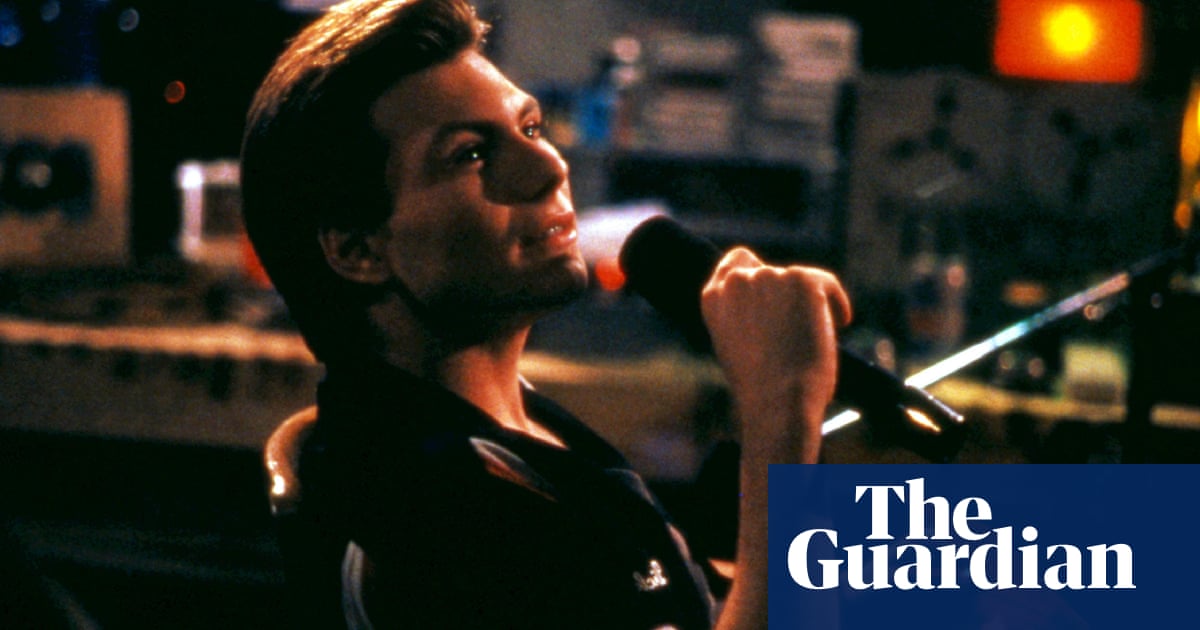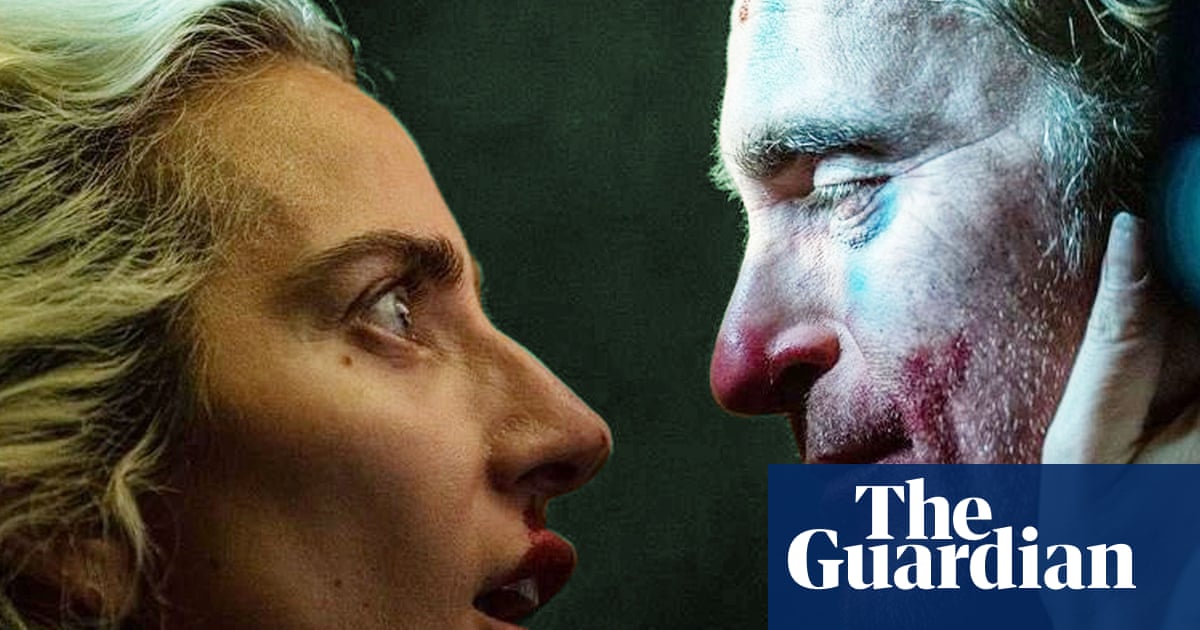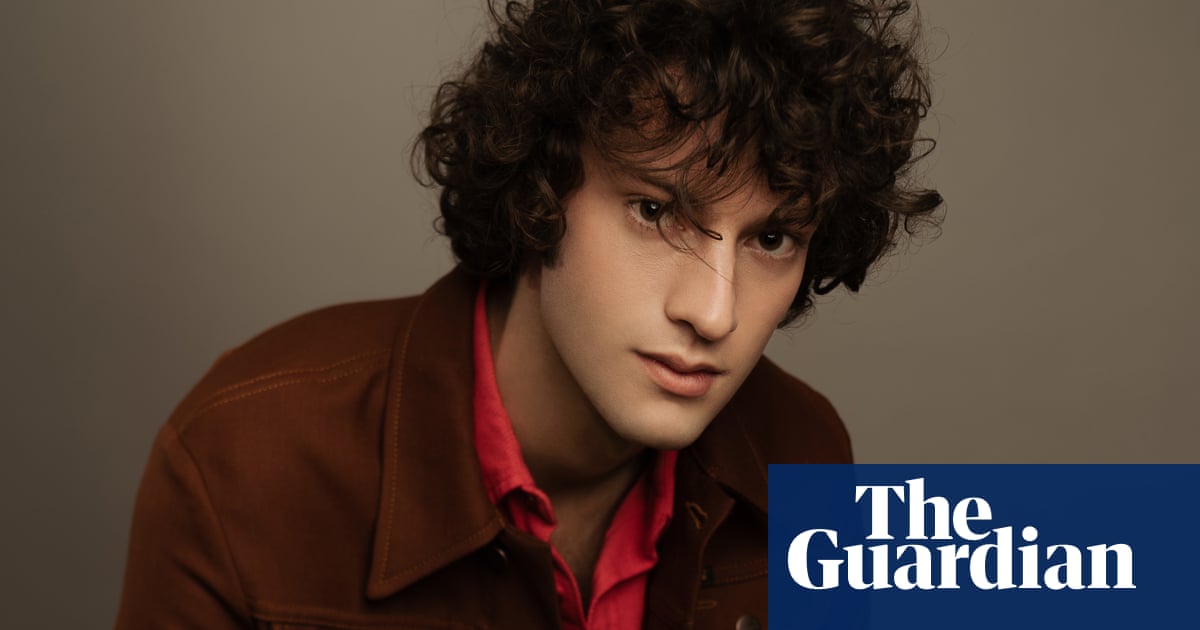
Watching the macabre 1989 high school movie Heathers, you may not have thought it needed show tunes. But after an off-Broadway run, Laurence O’Keefe and Kevin Murphy’s brutally funny, candy-coloured musical became a sensation in the West End. It starts a tour of the UK and Ireland this month while continuing a residency at the Other Palace in London, where they host singalong performances, serve “freeze your brain” cocktails and fans wear official Heathers lipgloss and colour-coded scrunchies.
Is this the future for Christian Slater’s subsequent teen movie, Pump Up the Volume? The film, a portrait of alienation and rebellion which stars Slater as shy student Mark who is a pirate radio DJ by night, was adapted as a rock musical in the US just before Covid. It has now reached London as part of MTFestUK, which showcases a slate of new musicals including versions of the TV show Come Dine With Me and Gogol’s The Government Inspector.
On Monday, a condensed version of Pump Up the Volume was presented in workshop form for a small audience at the Turbine theatre and I’m delighted to report (relieved even, since my childhood bedroom was covered with pictures and slogans from the film) that it channels the same unruly spirit. Jeremy Desmon’s book and lyrics preserve the blend of rancour and ribaldry that distinguished director Allan Moyle’s screenplay. But it keeps the compassion, too, of a film that didn’t satirise the students but seemed to really care for them. (Moyle’s original story was inspired by the suicide of a friend.)
Pump Up the Volume’s soundtrack introduced me to bands including Pixies, Cowboy Junkies, Sonic Youth, Bad Brains and Soundgarden. Richard Hell’s yelping, helter-skelter Love Comes in Spurts is a favourite of Slater’s enigmatic DJ, Happy Harry Hard-On, renowned for his on-air masturbatory stamina. But his listeners particularly revere his brand of jaundiced truth-telling in a world where, to quote his signature track (Leonard Cohen’s Everybody Knows), the good guys lost and the fight was fixed.
While something of the film’s scuzzy quality has been ironed out, the musical’s rousing, often anthemic rock score by Jeff Thomson is established with the opening number, Speak to Me, which shows how the students of a small-town school in Arizona become Harry’s disciples, religiously tuning in to hear him at 10pm.
Directed by Dave Solomon, the workshop performances – which run until Wednesday – are backed by a small band under the musical direction of Debbi Clarke, with props limited to a boombox, a mixtape and the red stationery used by Harry’s fan, Nora. Winningly played in the film by Samantha Mathis, Nora is given greater agency in the musical and becomes a crusading journalist for the school newspaper, her activist streak directly inspiring Mark.
In the musical, Mark’s dad is a tough police lieutenant (rather than a school commissioner) who is raising his son alone. He is shown to be frequently absent – and not the greatest detective if he doesn’t know what Mark’s up to in the basement – while the film showed Mark’s parents as present, well-intentioned liberals who recognise his isolation but seem resigned to not reaching him.
The ruthless and corrupt headteacher, Principal Cresswood (demonically played on screen by the great jazz singer Annie Ross), is here somehow both more monstrous – sacking the drama teacher for staging Fahrenheit 451 – and more humanised. She gets a solo built around the line “I’m the signal, he’s the noise” in which she rails against the “incessant chatter” of teenage life and seeks to find a way to cut through and establish her authority. Cresswood still represents a sense of national rot as the US enters the 90s and the musical adds a perhaps inevitable jibe at Donald Trump, said to be plummeting into bankruptcy at the time so “we’ll never have to hear from that asshole again”.
Today, of course, Harry would just have a podcast like everyone else. The musical has to work hard to establish the renegade spirit of pirate radio, rather as the movie Moxie did for riot grrrl zines. Like Heathers: The Musical, it also uses humour in returning us to a less interconnected world with rudimentary technology. (At the Other Palace, where Heathers has a huge fanbase of digital natives, the audience is instructed to turn off their smartphones because it’s the 80s and “they haven’t been invented yet”.)
But there are parallels, too, with more modern teen musicals, in particular Dear Evan Hansen in the way Mark uneasily adjusts to his role as an inspirational figure and the exploration of adolescent mental health. One song assesses the expectations and pressures placed on children who are told to “take one for the team, take two for the pain”.
“All the great themes have been used up – turned into theme parks,” sighs Harry in one of his diatribes. A cynic might say all the great movies are just turned into musicals. But this hourlong, no-frills, script-in-hand evening – with Noah Harrison and Jaina Brock-Patel both strong in the lead roles – suggests Pump Up the Volume could become a musical attuned to a post-pandemic teenage mental health crisis and a new age of disillusionment. The merchandise stall could sell Wild Cherry Diet Pepsi and Black Jack gum. Like Harry says: so be it.
Pump Up the Volume is at the Turbine theatre, London, until 8 February. MTFestUK continues until 11 February.












